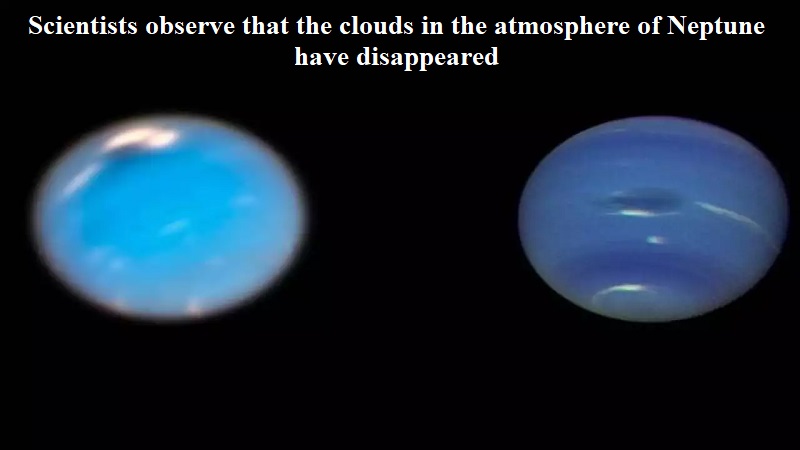
Neptune, a distant planet within our solar system, resides about 2.8 billion miles (approximately 4.5 billion kilometers) away from our Sun. The distinct bluish hue of Neptune is owed to its methane-rich atmosphere, reminding us that Earth isn’t the sole possessor of the color blue in our cosmic neighborhood. One more intriguing parallel between Neptune and Earth has come to light – the presence of clouds within Neptune’s atmosphere.
However, a remarkable occurrence has taken place: these clouds have dissipated.
In the vast expanse of space, the search for phenomena that mirror conditions on Earth is a common pursuit. When such occurrences vanish in space, it becomes a subject of significant interest for scientists, who then embark on investigations to understand the underlying mechanisms.
Imke de Pater, an emeritus professor of astronomy at the University of California, Berkeley, and the senior author of a study on these findings, expressed her surprise at the rapid disappearance of clouds on Neptune. She noted, “We essentially saw cloud activity drop within a few months.”
But what has led to the disappearance of Neptune’s clouds?
The culprit is the Sun.
Despite our tendency to envision the Sun as a blazing “land” of intense heat, it is composed of charged particles in the form of plasma. These charged particles and plasma exhibit continuous movement, which can induce alterations in the Sun’s structure, including changes in its magnetic field.
Every 11 years, the Sun experiences a magnetic pole reversal, resulting in the North Pole transforming into the South Pole and vice versa. During this magnetic flip, the Sun’s ultraviolet (UV) radiation reaches its peak intensity.
It is this heightened UV radiation from the Sun that is influencing the behavior of Neptune’s clouds.
Observations indicate that two years following the magnetic pole reversal, clouds become detectable in Neptune’s atmosphere. Scientists propose that the robust UV radiation from the Sun is a trigger for the formation of these clouds. As the Sun progresses towards its subsequent magnetic flip and the radiation weakens, the clouds subsequently dissipate.
In essence, there’s no cause for alarm. Neptune’s response is simply a result of the Sun’s cyclic pattern of activity.

Post Your Comments